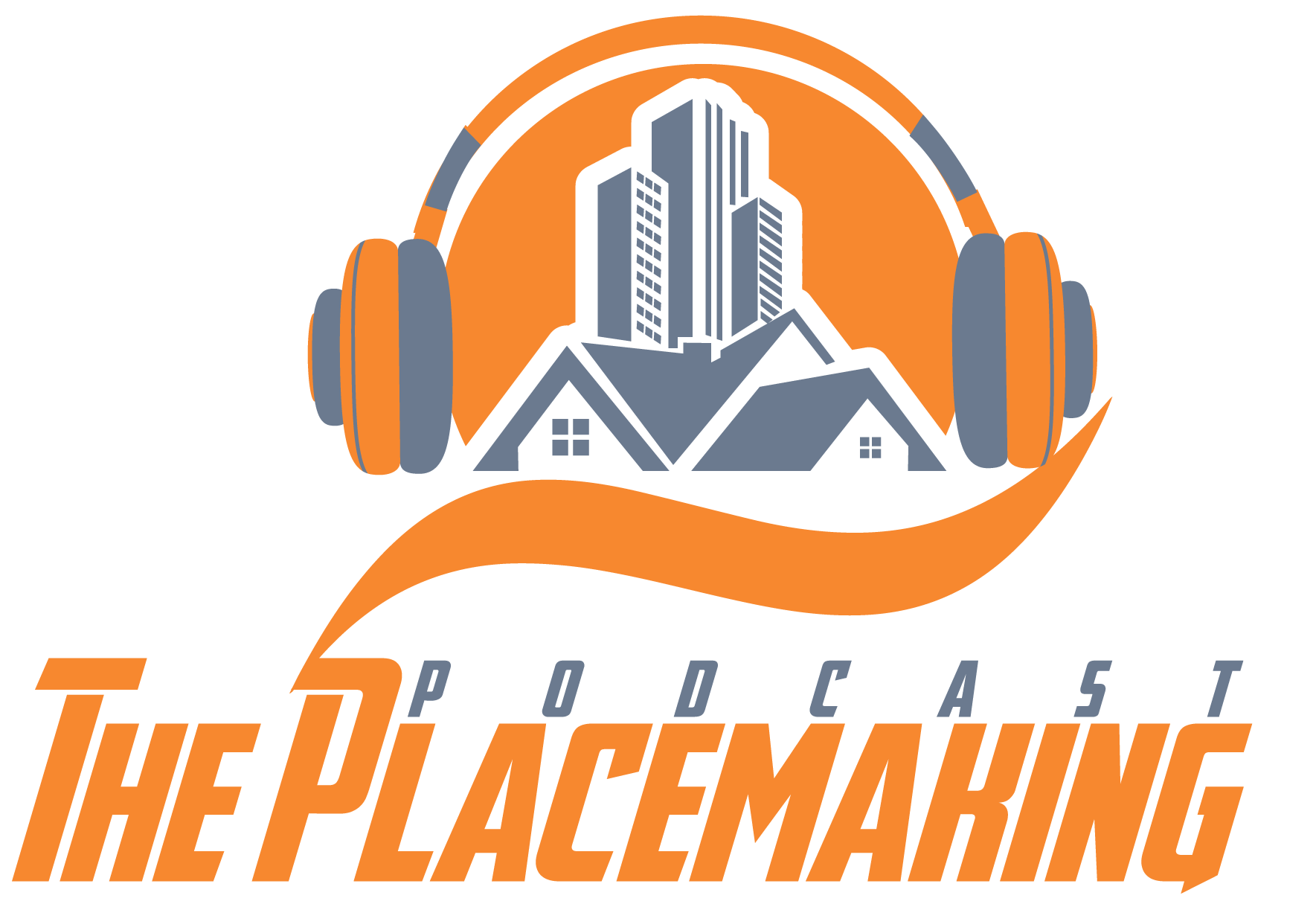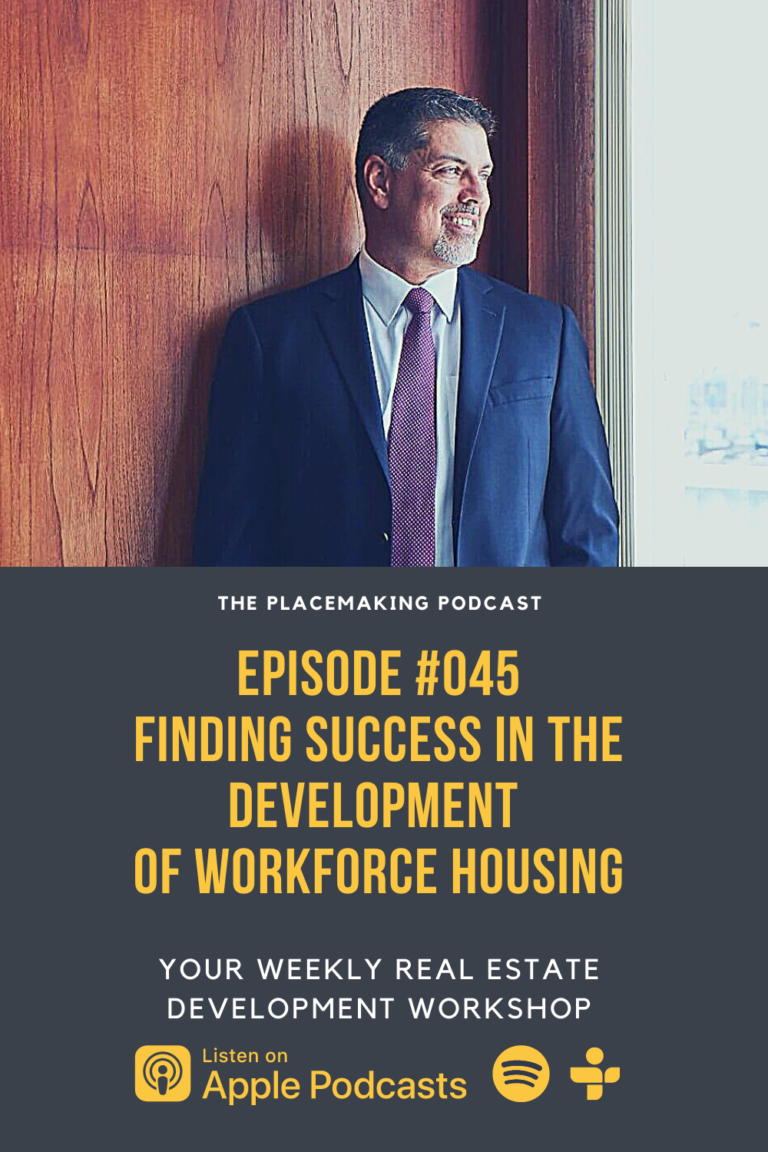- placemakingpodcast@gmail.com
Finding Success in the Development of Workforce Housing with Scott Choppin – Ep. 45
About the Guest
I am extremely excited to share this next conversation with all of you. There is tons of gold in this episode, I can promise you that. Scott Choppin is the Founder of the Urban Pacific Group of Companies. Scott oversees all operations of the Urban Pacific family of companies, including business development, capital acquisition, and strategic planning. Prior to forming Urban Pacific, Scott was Director of Land Acquisition for the Multi-Family Development Division of Irvine-based Sares-Regis Group. In that position, he was responsible for all land acquisition activities for the development of luxury, market rate and senior rental communities throughout California, Colorado, and Arizona. Before joining Sares-Regis, Scott was with Kaufman and Broad Multi-Housing Group. As Senior Project Manager, he was responsible for all activities related to multifamily development, including the acquisition, entitlement, syndication and development of over 1,900 affordable multifamily units throughout the Western United States. Prior to that, Scott was a project manager with Irvine-based Snyder Langston Real Estate and Construction Services. Needless to say, Scott has tons of practical experience in the real estate development field.
For over 50 years, Urban Pacific and it’s founding family have been developers of premier residential and commercial projects. Including development of the Long Beach World Trade Center, and the Axis at Westminster project, Urban Pacific and the Choppin family have built superior identities of trust, value, authority, and leadership in the real estate development domain throughout the nation.
In this episode, we are going to discuss founding Urban Pacific, the attributes of successful developments and how they can impact the surrounding neighborhoods and towns, and how developers can potentially make the leap from working with a firm to owning their own development firm. There is loads of great information in this episode and I greatly appreciated Scott for taking the time out of his extremely busy schedule to discuss this topic of workforce housing development with me.
As always, if you have enjoyed the show, please subscribe to the show and share it with your friends in the industry. There will be more exciting conversations on the shows to come.
Main Take-Away’s From This Show
This was another interesting episode to record. I thoroughly enjoyed Scott candidly sharing his story behind founding Urban Pacific and the various revelations he came across on his journey. This was a really interesting look at not only the economic benefits of workforce housing but the potential societal impacts that such developments bring to the surrounding communities. There were so many great talking points that Scott shared throughout the discussion, so it is hard to just pick three for my main take-away’s this week. The following main topics of the show come from an understanding of workforce housing and real estate development that Scott possesses.
1. If you want to launch into your own real estate development firm, it might be best to work for a firm and build a large network before doing so.
2. There are many traits that make Workforce Housing desirable for development.
3. Building Trust is absolutely necessary in the Real Estate Development Industry.
As always, I will dig into each of these “take-away’s” every week on the blog. So, without further a due, here we go!

If you want to launch into your own real estate development firm, it might be best to work for a firm and build a large network before doing so.
As mentioned previously, there was tons of value that could be mined from this episode. During the discussion, Scott took some time to delve into his thoughts when jumping out on his own and starting a new firm. This was extremely interesting to hear his thoughts on the subject. The discussion turned into more of a personal reflection on the series of events and thoughts that lead to his eventual “leap” into entrepreneurship.
Scott mentioned that although he felt the timing was right for his departure from corporate structure, he understands why others may decide to hold off this move until they build up a much stronger network of supporters and ambassadors. This made a tremendous amount of sense and stuck out in my mind during the discussion. There are many reasons why one might stick in the game a little longer with an established firm. When staying with a larger firm, you can build a much bigger Rolodex of contacts than could obtained while establishing a new firm. This also allows you to build more and more credibility with the number (and size) of successful deals under your belt increasing each year with a corporate firm.
It’s no wonder that most successful startups are created by individuals reaching what we would call middle-aged. According to Entreprenuer.com, “Based on employment growth and fastest sales growth in the first five years of operation, data on the top 0.1% of startups reveals that the founders of these firms started their companies, on average, when they were 45 years old.” These people have the skills, network, and track record needed to show potential investors that they can be trusted to perform. It may not be such a bad idea to stick around in the corporate world for a little longer after all!
There are many traits that make Workforce Housing desirable for development.
Workforce housing often comes with a negative connotation. However, the type of development that we are discussing in this podcast is geared at working-class, blue-collar workers that need an affordable place to live. As mentioned in the episode, there is very little emphasis being put on the housing needs of these people currently. This is a deeply undersupplied sector of housing that needs to be addressed. As mentioned, true “affordable housing” is government subsidized housing whereas “workforce housing” is more for those that are over-qualiified for these government subsidized housing but may not be able to afford the Class A products that are often being constructed during this market cycle.
Scott is making these projects economically viable and successful in the way that he structures these deals. He believes that this model is truly “Recession Resilient” due to the following reasons; the tenants are typically gainfully employed, they contain strong family units that share expenses across the various members of the family, and the market is heavily undersupplied for these type of residents.
To break it down a little further, the tenants that often occupy these UTH (Urban Townhome) units are gainfully employed with often more than one income-earner in each household. They often comprise of very strong family units with extended family living in the units as well. This allows them to share expenses across the various members of the household to reduce the cost burden. Also, as mentioned, this type of development addresses the issue of “missing middle housing” that is so commonly discussed in development circles around the U.S. This is something that Scott believes heavily in and seems to provide an economic and societal return to both Scott and the tenants that occupy his developments.
Building Trust is absolutely necessary in the Real Estate Development Industry.
This last main point is one that is almost too simple, but often overlooked by real estate entrepreneurs. Real estate development is a “people business” plain and simple. This single truth has been reiterated throughout all of the podcast episodes to date and it really can’t be dismissed. One of the core foundations of building relationships in this people-oriented business is to build trust. So how do we do this in real estate development?
It’s honestly not too difficult say, but can be hard to do in practice. Scott broke it down very well in this episode. Scott believes that trust is built by sincerity, reliability, and competence. Essentially it is a three-legged stool requiring all three legs for the stool to stand.

To Scott, sincerity is speaking the truth. Reliability is making good on your promises or the truth you speak. The last one, competency, is centered around a knowledge or wisdom about a project to which you are being trusted. In order to truly be trusted in the real estate development industry, you must have all three of these attributes to gain the trust necessary to make your projects successful.
As you can see from the take-aways above, this podcast episode was absolutely full of great information on making it in real estate development and certainly provides actionable steps you can take on your next real estate development project. As always, if you have enjoyed the content and the show, please subscribe to the show below and share with your friends in the industry! We’ll have many more great discussions on the shows to come.
To Learn More About Scott Choppin and The Urban Pacific Group of Companies, Check out the Following Websites:
Recommended Reading Section
P.S. We spend (a lot) of time, sweat, tears, and money creating each episode of The Placemaking Podcast. We do this without the support of sponsors as we want to keep the advertisements out of the picture and provide an add-free listening experience. YOUR support ensures we can keep delivering these discussions ad-free!
If you feel compelled to donate to the show (and receive some cool bonuses…) you can check out my Patron Page.
Subscribe To Our Weekly Updates
Find Us Here
The Placemaking Podcast
All Rights Reserved © 2020
Podcast: Play in new window | Download (Duration: 57:43 — 33.6MB) | Embed
Subscribe: Apple Podcasts | Spotify | TuneIn | RSS | More








